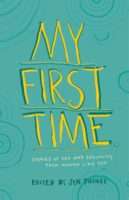Lindy Mtongana
It happened in a makeshift theatre that had been rigged up in a large classroom of a local high school. There were close to 200 of us, tightly packed in, sitting side by side on those rickety steel grandstands—the kind where the complimentary cushion provides little comfort and does even less to prevent your backside from going numb.
The actors had just finished a performance of The Vagina Monologues. There was generous applause from the audience, pleased with itself for engaging with this groundbreaking and controversial piece of feminist theatre. In truth, though, I suspected none of us were quite sure what to feel. We had laughed, we had recognised ourselves in some of the characters portrayed, and we would talk about the play when we made our way back onto the bustling streets of the National Arts Festival. But few of us really knew what the appropriate emotional response was to a series of stories about women and their vaginas.
When one of the actors signalled for us to quieten down, the applause faded and, in a voice that projected across the classroom, the performer said, “Would those of you who are willing, please raise your hand if you have ever been a victim of sexual abuse or assault of any kind.”
At least four of the six actors were the first to raise their hands. The audience was less eager to divulge. The question had taken us by surprise and obviously it was deeply personal. Even so, a few people in the audience tentatively rose their hands.
Then the booming voice filled the room again: “Would those of you who are willing, please raise your hand if you know someone who has ever been a victim of sexual abuse or assault of any kind?”
This time, without much hesitation, hands shot up in the air throughout the room. We all knew someone. No doubt, some of those who were too shy earlier were raising their hands for themselves as victims.
I thought of those I knew. A friend who was molested as a child. Another who was sexually abused by an uncle for close to a decade. Another who was raped in her first year of university. And a classmate who, after becoming a drug addict and nearly losing her mind, was informed by her parents that she had been raped at the age of two by an uncle. They had withheld this information from her, hoping that the memories and the trauma would never resurface.
Suddenly I felt as though my heart was cracking open, like a dam wall breaking before the water comes rushing through; I could feel the first stirrings of the emotional response the play and the ensuing exercise elicited in me.
Looking at the room of raised hands, my feelings flowed out in confused and contradictory bursts. First anger at the violence that has been meted out to women across this country. Then gratitude for the fact that I need not count myself as one of its victims. Then shock that I should need to be grateful to have never been a victim of sexual violence.
The chilling reality stared me in the face—that the sexuality of women in South Africa was, and continues to be, severely compromised by how pervasive sexual abuse is in our society. I think that what should be a God-given right for any woman, the right to their own sexuality and sexual pleasure, comes down to luck in the end. I was lucky to own my vagina. Unlike many women in South Africa, my sexuality was mine to enjoy and experiment with. The journey of my sexual discovery would not be tainted by memories of violation, fear and pain. My vagina was mine.
I wished all women could say the same.
I left the theatre that night with a prayer in my heart, that a generation of South African women free from abuse was close at hand. I pleaded with the heavens that if a booming theatrical voice should ever address those questions to an audience again, not a single hand would be in the air.
Lindy Mtongana studied Journalism and Drama at Rhodes University. Over the past five years she has worked as a journalist in online media and broadcast. She currently works as a news anchor for eNews Africa, a division of the eNews Channel.


